Elisabeth Moss on The Handmaid's Tale, Margaret Atwood and Mad Men
The 'Mad Men' actress stars in new Hulu show ‘The Handmaid’s Tale’, which is based on Margaret Atwood’s book of the same name and has been given a modern twist
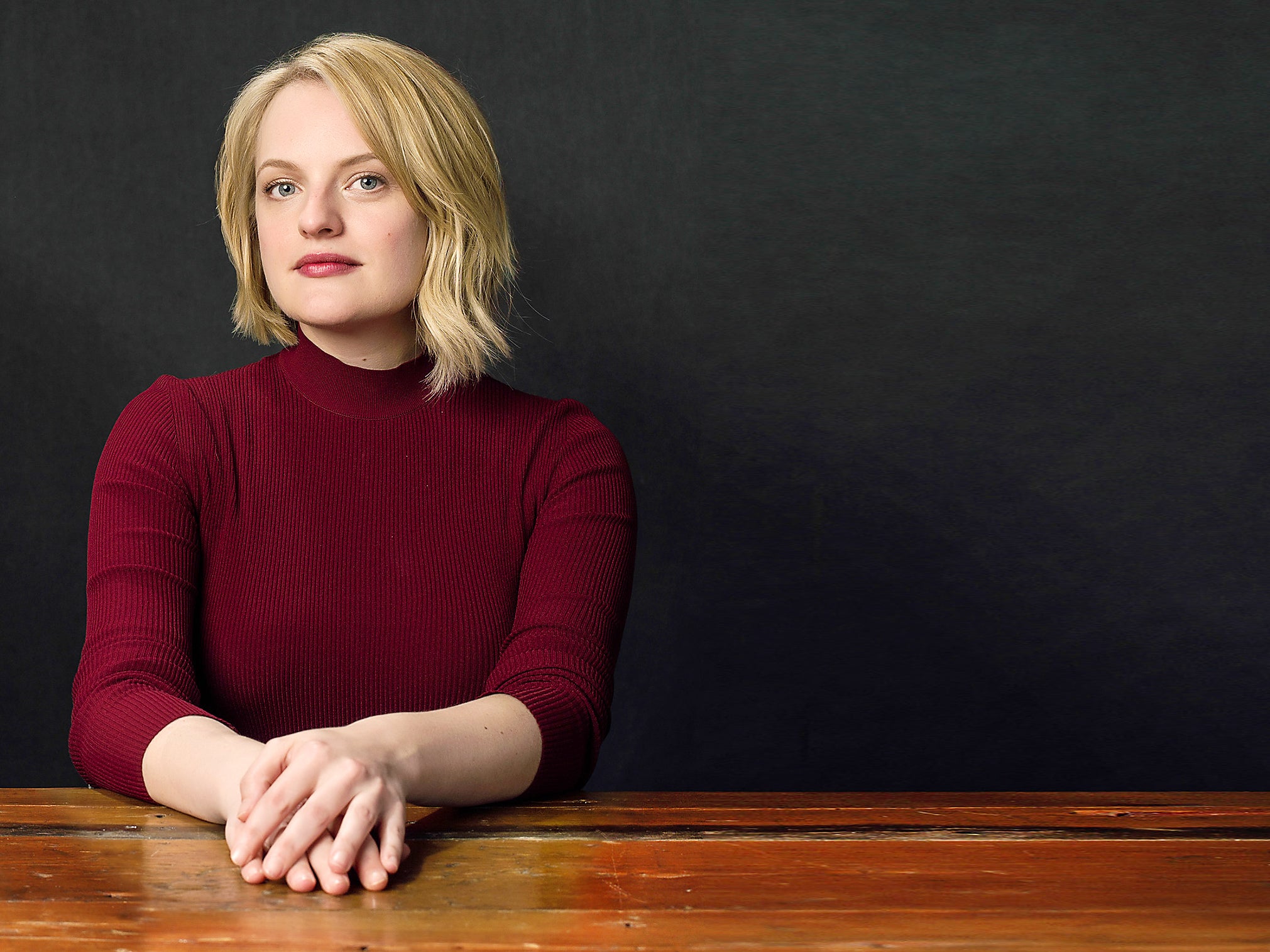
“It was the weirdest scene I have ever done in my career,” Elisabeth Moss says.
She is referring to a key scene in the new Hulu series The Handmaid’s Tale.
In the scene Moss wears a blood-red dress and a white bonnet as she lays splayed across a bed, her head in the lap of actress Yvonne Strahovski. A door slammed, and Joseph Fiennes walked in.
Moss plays Offred, a so-called Handmaid who is a breeder of children for the privileged. Fiennes and Strahovski play a rich couple, he the projected father of her child and she the wife – ironically named Serena Joy – who, in order to be a part of the process, is also involved in the bedroom scene. It is at once strange, clinical and deeply disturbing.
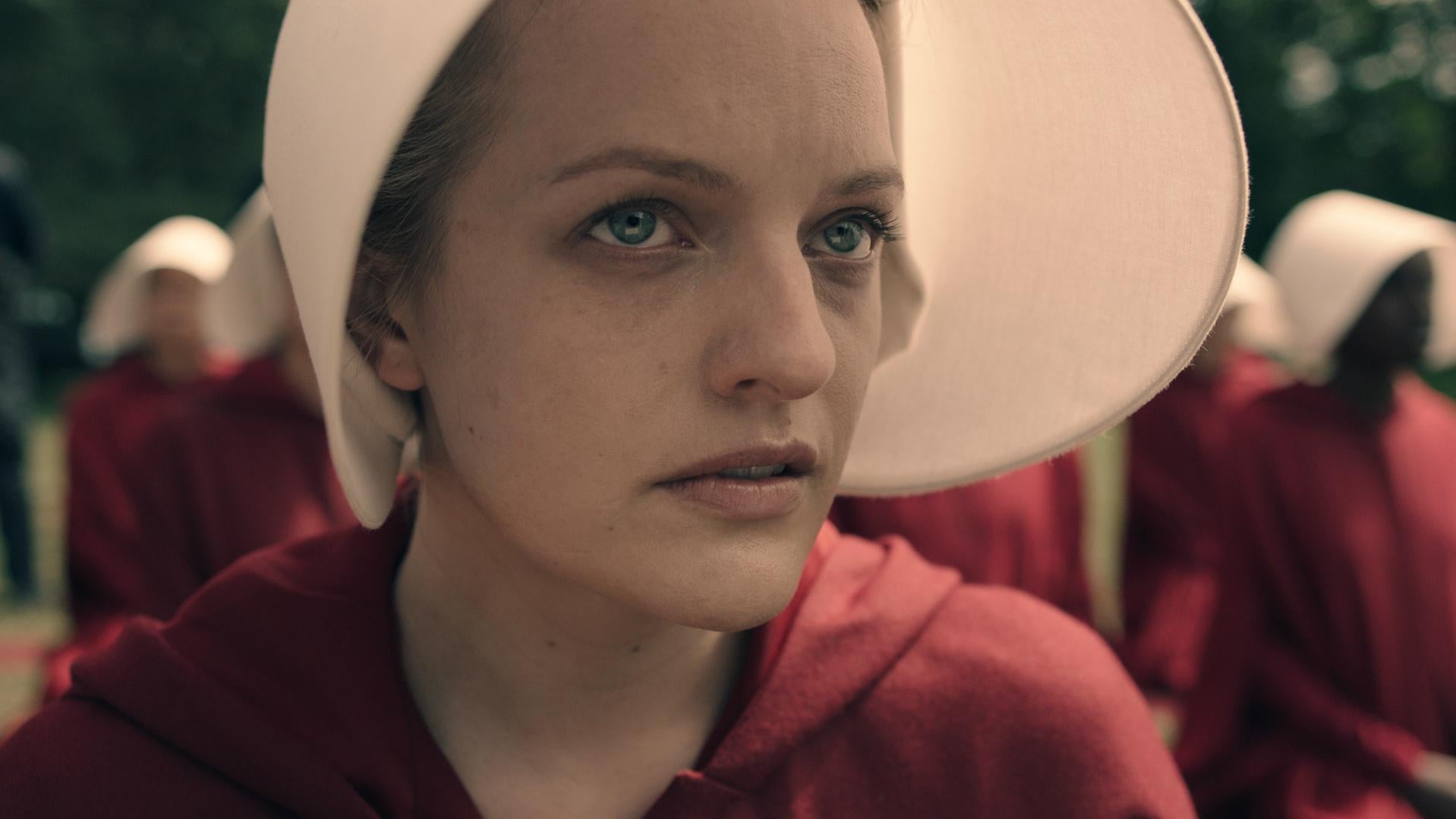
“Quite unabashedly, I call it a rape,” Moss says by telephone from her Los Angeles home. “This was not consensual sex, and it was very important for us to make sure that it was clinical and factual. We didn’t hold back, but there wasn’t an element of this that was sexy or sexual. Try odd and awful. Believe me when I say that this wasn’t a pleasant experience for any of us.”
Based on Margaret Atwood’s 1985 book of the same name, The Handmaid’s Tale is set in a dystopian future in which the United States has become a fundamentalist theocracy in which, due to a radical decline in female fertility, women are little more than property, whether as cosseted wives, abused servants or slave labour. The book has been controversial since its first appearance, and the series is likely to be no less so.
Moss, who also is one of the show’s producers, stars as Offred, who is stripped of her husband, young child, job and money and then shipped off to be trained as a handmaid, a breeder whose sole role is to move from mansion to mansion, making it possible for infertile couples to have children. Alexis Bledel plays Ofglen, a rebel involved in an underground group that fights for women’s rights.
“Handmaids are allowed very little freedom and have one job: produce children,” Moss says. “It is, in a word, a nightmare.”
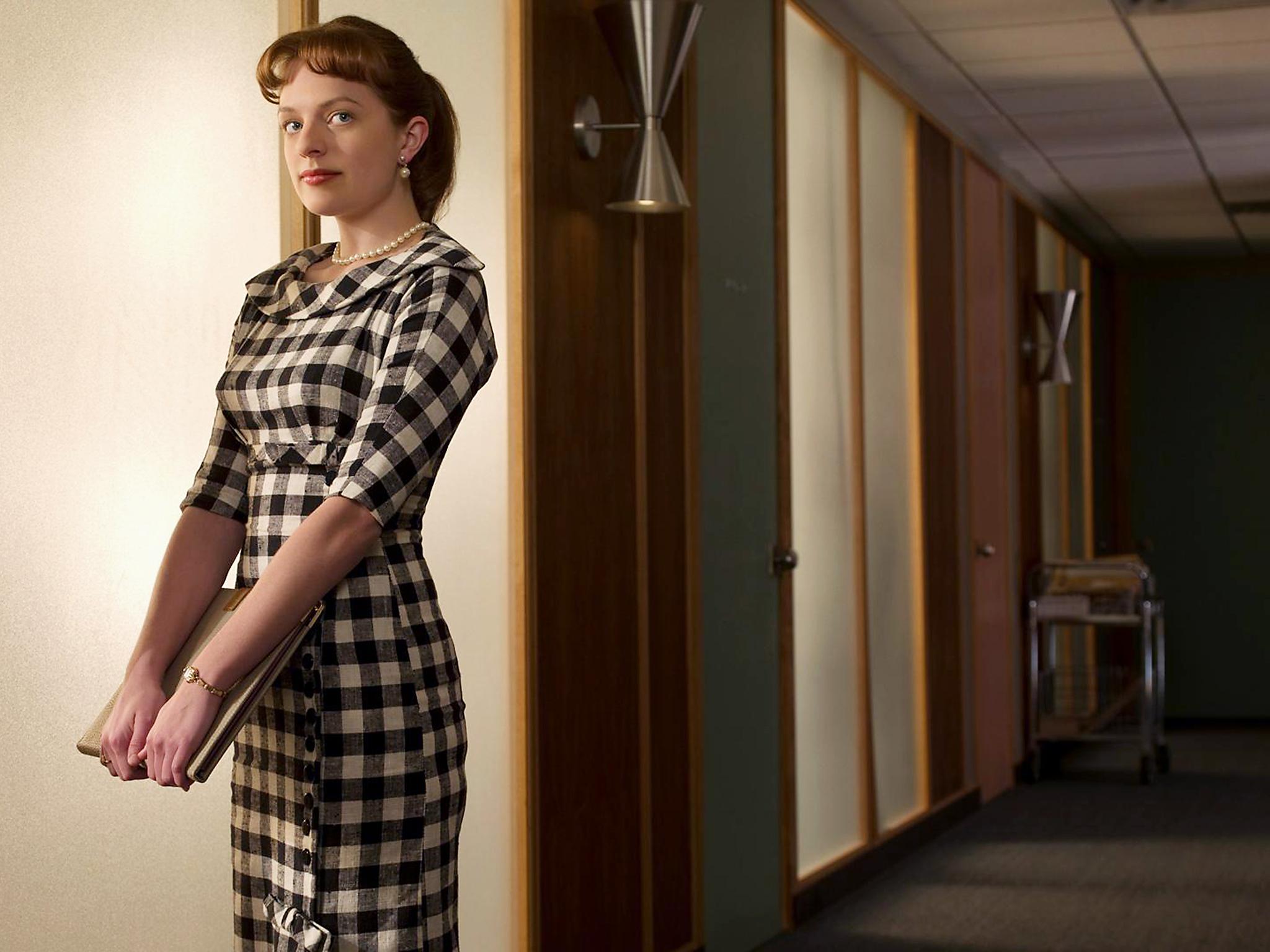
Following in the footsteps of an unsuccessful 1990 film that starred Natasha Richardson and Robert Duvall, the new show has been in the works for several years.
“It came to me as a fully formed series,” Moss recalls. “Hulu had already ordered 10 episodes and had two scripts to show me. My agent said, ‘They’re doing The Handmaid’s Tale with a modern twist.’ I said, ‘How the heck are they going to do that?'”
She was pretty much sold after the first script, the actress says. “It was incredible, but I asked for the second script just to make sure. Sometimes, in a series, the second script is just not as good, but in this case the second was better than the first.
“I knew I had a major decision to make and had to do some soul-searching. When you sign on for a new series, you hope it goes the distance, which can mean years playing this character.”
Her biggest concern, Moss says, was that the new Handmaid’s Tale not be a watered-down, politically correct version.
“It needed to be ballsy,” she says. “I didn’t want to hold back. If you’re going to take something that’s such a beloved work, that people have attached themselves to emotionally, then you’d better do it justice.
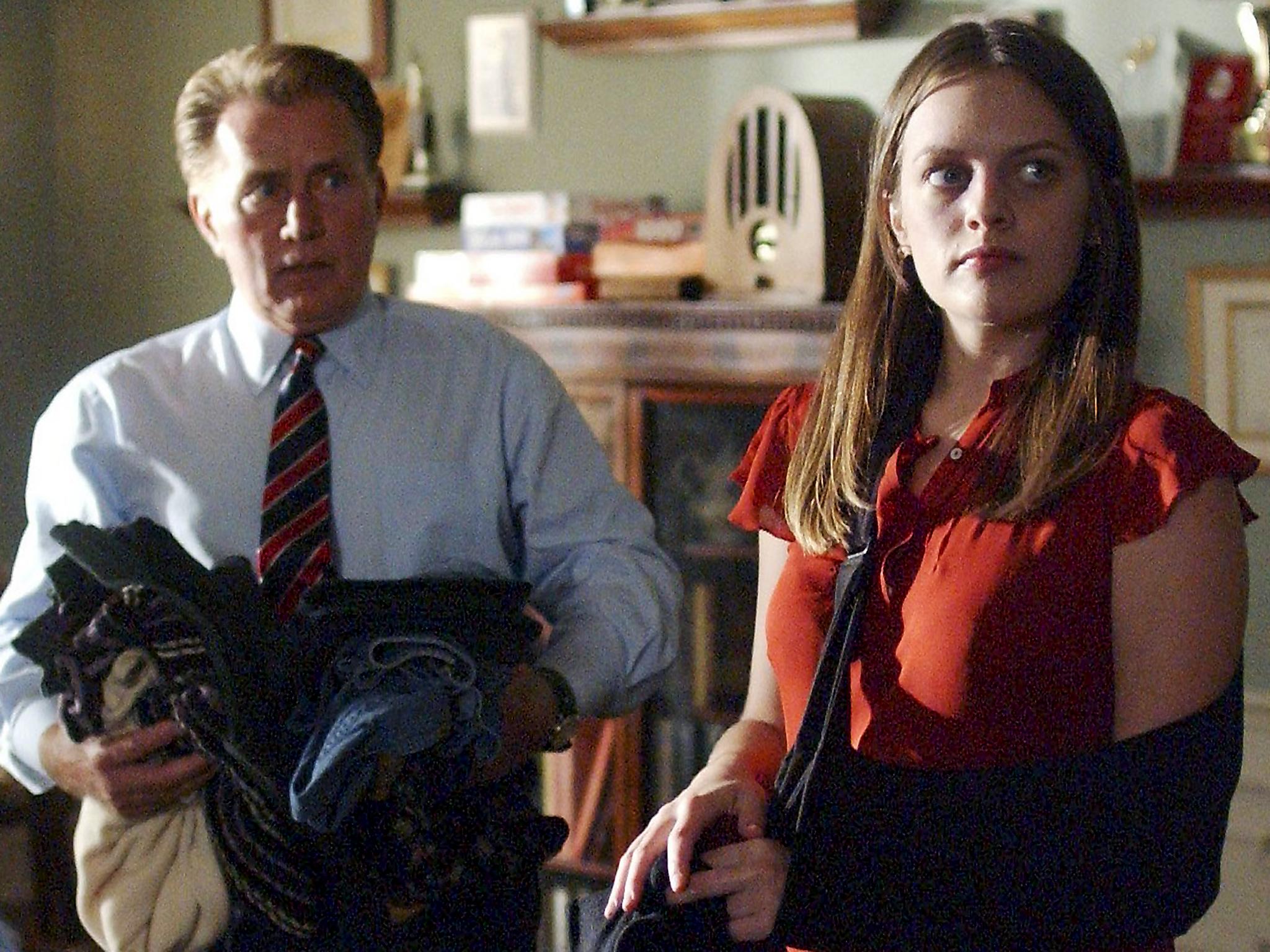
“I have very high standards for television,” she says. “My thing is that, if you’re not going to go all in, then you’d better not do it at all.”
Her Offred has a modern sensibility, Moss says. “This is not a period show. You hear a modern woman’s voice. She has modern thoughts. I love when she says the F-word under her breath or makes those inappropriate jokes that could get her killed or she could lose an eye. Atwood’s dark, dry humor also has that tone.”
She says she treasured the opportunity to get to know Atwood, a Canadian author and environmental activist who is still active at 77.
“One of the first questions I asked Margaret Atwood is how a society would take women’s rights away,” Moss says. “I asked, ‘What would be the first germ?’ She said it wouldn’t be a matter of ripping away women’s rights; it would start with incapacitating woman through their bank accounts.
“On the show it starts with women not being able to use their credit cards. They just don’t work anymore – and everything is done with credit cards. Then you take away a woman’s access to money and her job. You take her children and give them away.
“It’s a thing where in the end, if we let certain people have too much power and we don’t have a system set in place, then, yes, that’s exactly how women could lose everything.”
There have been some changes between the novel and the television series, however. One of the most important involves the relationship between Offred and the Commander (Fiennes).
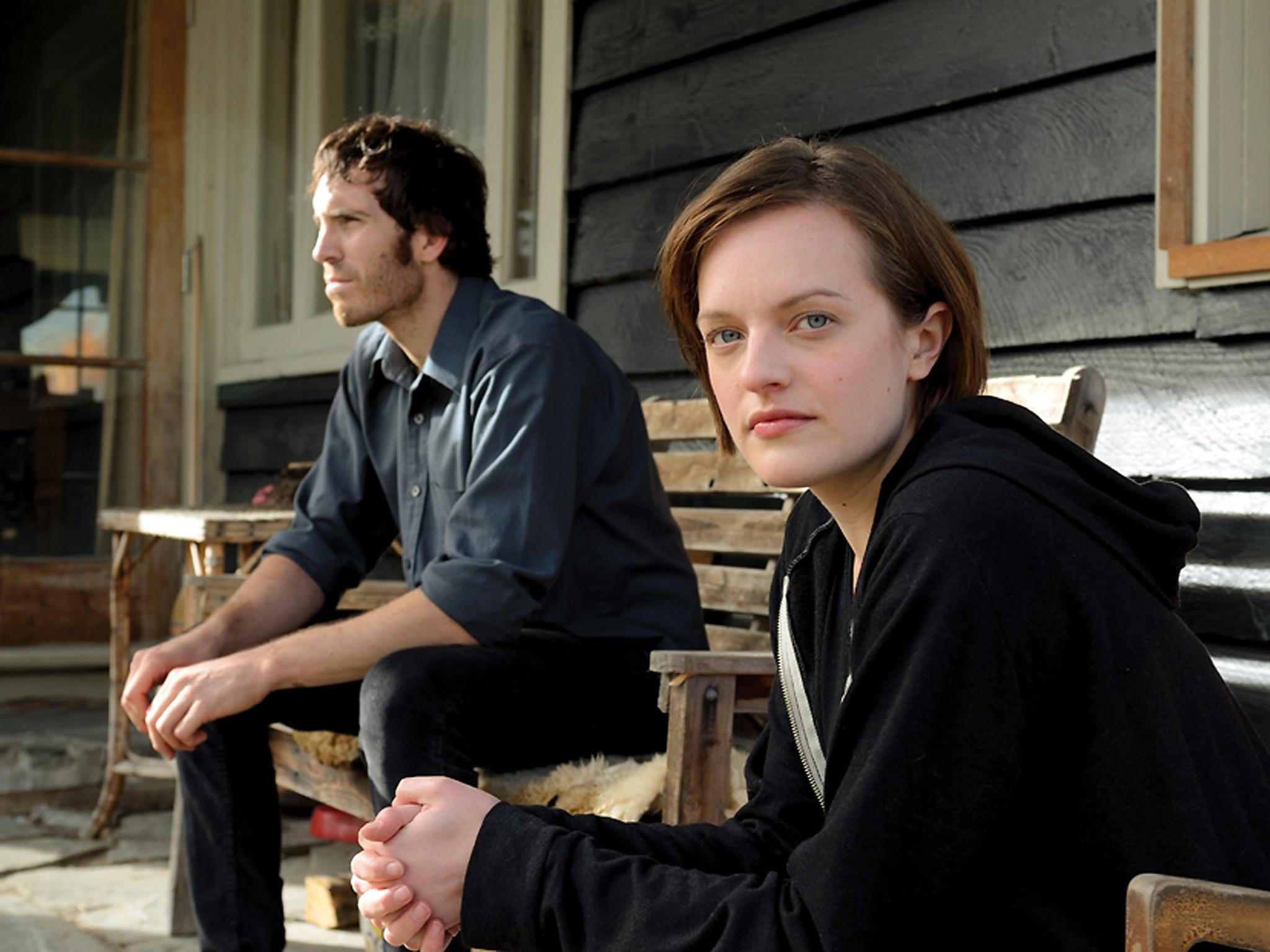
“It’s a unique story,” Moss says. “I thought this relationship was one of the most interesting elements, and Joe and I talked a lot about it. In the book it’s clear that he’s just the villain. The wife is more clear-cut bad. It was important to all of us to make them fully formed characters, to complicate these miserable, lonely lives devoid of love.
“Even Joe’s Commander is ultimately a person with no human contact. One tiny little touch means the world to him. A touch of a hand is everything. This new world is devoid of human touch.”
Moss grew up in Los Angeles as the daughter of musician Linda Moss and Ron Moss, who manages jazz musicians. Her artistic life began on stage in New York, where she studied at the School of American Ballet and later with prima ballerina Suzanne Farrell.
She made her acting debut on the miniseries Lucky Chances (1990), and went on to small-screen stardom as Cynthia Parks on Picket Fences (1992-1995), presidential daughter Zoey Bartlet on The West Wing (1999-2006) and, most notably, Peggy Olson on Mad Men (2007-2015), a performance which earned her six Emmy nominations. Moss also stars as Det. Robin Griffin on the Sundance Channel series Top of the Lake.
She’s been seen on the big screen in such films as A Thousand Acres (1997), Girl, Interrupted (1999), Did You Hear About the Morgans? (2009), Get Him to the Greek (2010) and the upcoming Old Man and the Gun, in which she co-stars with Robert Redford and Casey Affleck in the story of an elderly bank robber living in a retirement community.
“I look for good writing,” Moss says. “I don’t care how big a project is. I don’t care if it’s a $100m film or one that cost nothing. TV, movies, miniseries, it’s just about the material. You can’t do anything with bad writing.”
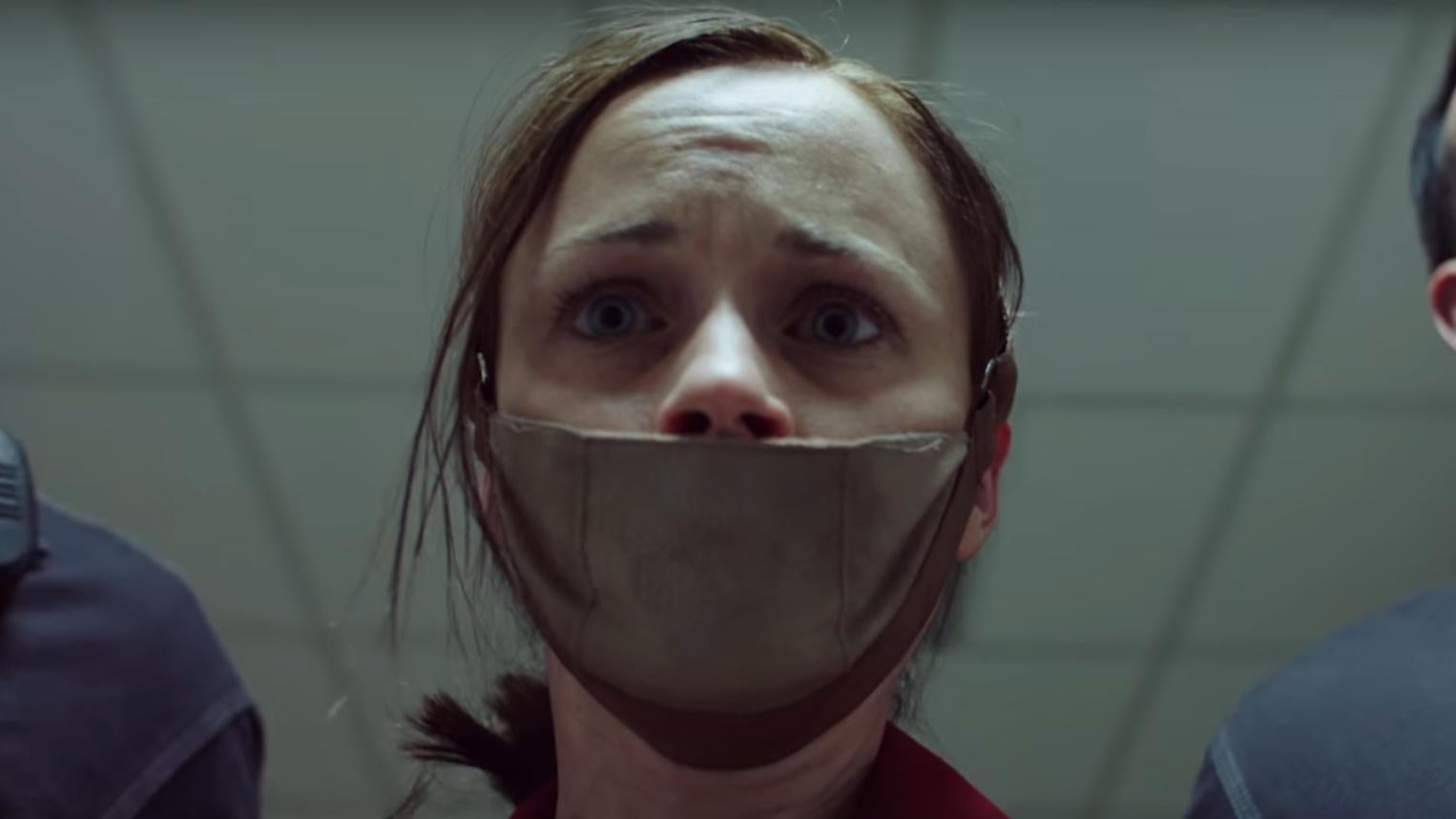
She’s still best known, of course, for Mad Men. Her most iconic moment as Peggy may have come in the series finale when, dangling a cigarette from her mouth and carrying a box of her belongings plus a painting, she strutted down the hallway of a new ad agency.
The look on Moss’s face was priceless. What was she thinking?
“I was just feeling myself as Peggy,” she says. “Otherwise, there was a box I had to hold in a certain way and that big painting. The truth is, hanging a cigarette out of your mouth is difficult, but we made it seem easy.
“Half of me was thinking the logistics of the scene, half of me was thinking about Peggy’s future. She’s proud and probably a little hung over.”
Does she ever miss Mad Men? “I would say no,” Moss says. “That doesn’t mean I don’t appreciate and love it, but I did it for nine years. I felt I did all I could do. I don’t know if there was anything left to give.
“When you have such a great run as a character like Peggy, you’re forever grateful for it. You can’t go, ‘I want more.’ It was a chapter in my life that’s closed. Besides, Peggy did everything.”
Well, almost everything. She never did have that torrid affair with Don Draper (Jon Hamm).
“Shucks,” Moss says, laughing. “You know what I always say? The reason Peggy was Peggy was because she never slept with Don Draper. That’s a lesson, ladies: Some men are meant to get away.”
© New York Times
'The Handmaid's Tale' is out on Hulu on 26 April
Join our commenting forum
Join thought-provoking conversations, follow other Independent readers and see their replies
Comments
Bookmark popover
Removed from bookmarks